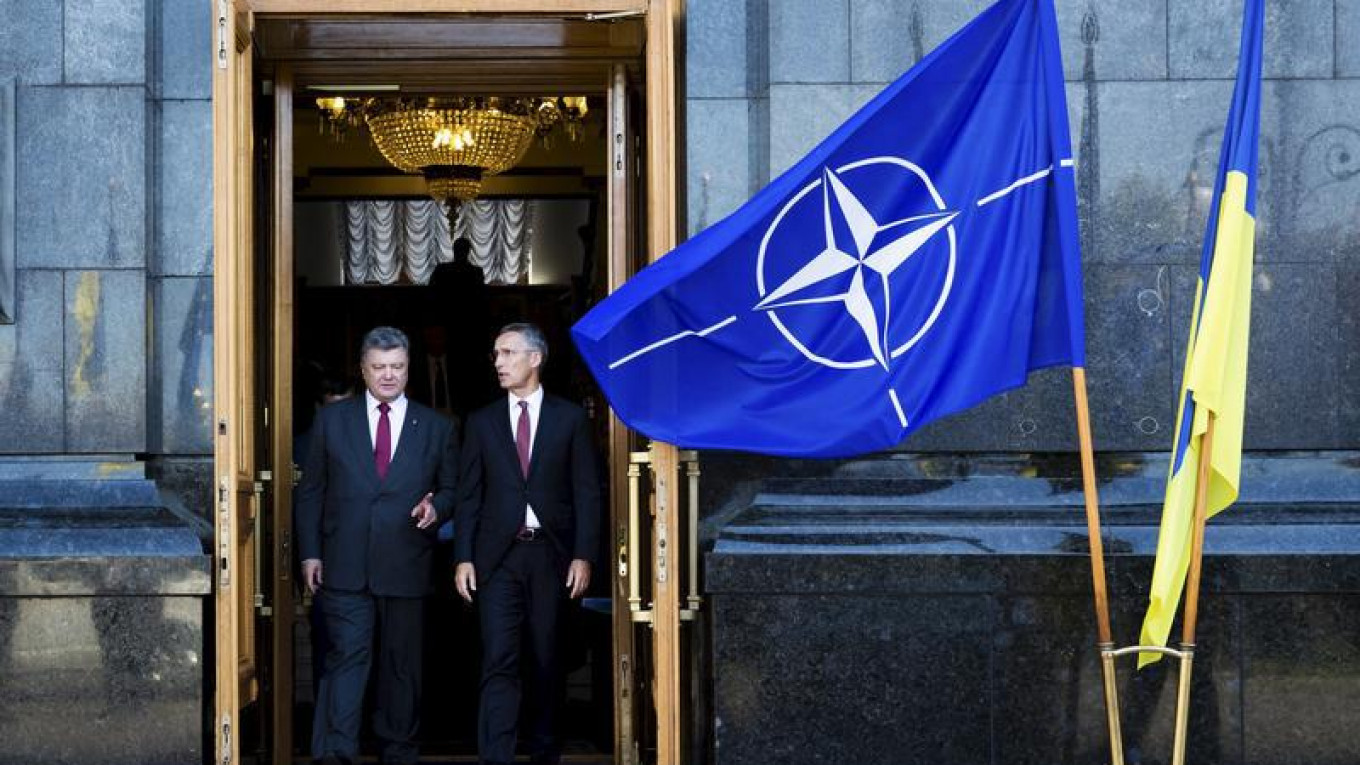NATO has reportedly called off a meeting with Ukrainian officials due to fears of provoking the Russian government.
The military alliance had planned to meet with officials in Kiev to discuss its new missile-defense system based in Romania, the Wall Street Journal reported Wednesday. The meeting would have tackled the problem of debris, or off-course interceptor rockets, falling on Ukrainian territory in the event the missile shield was ever put into use.
However, escalating violence along Ukraine's eastern border has reportedly pushed NATO diplomats to rethink the meeting, with many unwilling to risk undermining relations with Moscow.
Fighting flared in the self-proclaimed Donetsk People's Republic Jan. 29, with heavy artillery fire falling on residential areas in the the Ukrainian held town of Avdiivka. The shelling resulted in numerous civilian injuries, one civilian death, and seven military deaths. A spokesperson for the Donetsk separatists, Eduard Basurin, confirmed that five of their soldiers were also killed in action.
Meanwhile Ukraine’s defense minister, Stepan Poltorak, claimed on Wednesday that a Ukrainian military transport aircraft had taken small arms fire while flying over the Black Sea.
He said that the gunfire came from a “Russian-captured oil rig” near the Odessa gas fields.
An unnamed diplomatic source told the Wall Street Journal that NATO's engaging with Ukraine could “fuel an overreaction by the Russians.”
The NATO missile shield has long been a contentious issue with the Kremlin, who claim that the system could render their nuclear deterrent useless. U.S. Officials have long denied the allegations, saying that the shield will be positioned to counter possible attacks from Iran.
The Romanian missile-defense site will be a the center of a larger missile deterrence network of U.S. ships armed with radars and missile interceptors. The ships regularly patrol the Mediterranean Sea and occasionally enter the Baltic or Black Sea near Russia.
The construction of a second missile defense installation in Poland had already begun, and is expected to go online in 2018.
A Message from The Moscow Times:
Dear readers,
We are facing unprecedented challenges. Russia's Prosecutor General's Office has designated The Moscow Times as an "undesirable" organization, criminalizing our work and putting our staff at risk of prosecution. This follows our earlier unjust labeling as a "foreign agent."
These actions are direct attempts to silence independent journalism in Russia. The authorities claim our work "discredits the decisions of the Russian leadership." We see things differently: we strive to provide accurate, unbiased reporting on Russia.
We, the journalists of The Moscow Times, refuse to be silenced. But to continue our work, we need your help.
Your support, no matter how small, makes a world of difference. If you can, please support us monthly starting from just $2. It's quick to set up, and every contribution makes a significant impact.
By supporting The Moscow Times, you're defending open, independent journalism in the face of repression. Thank you for standing with us.
Remind me later.






